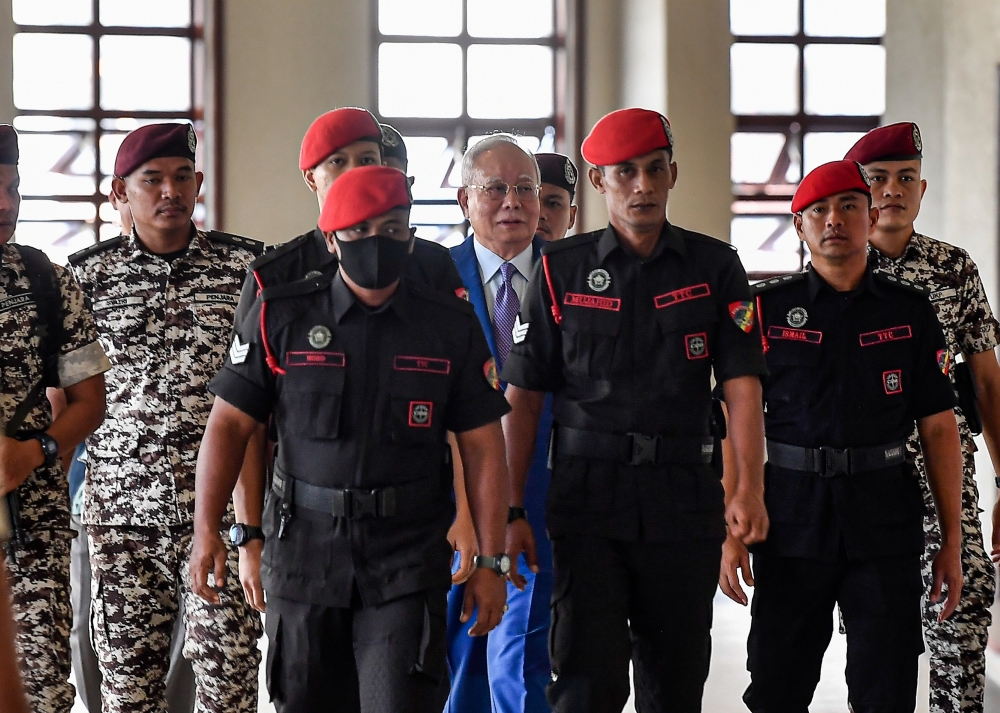扑朔迷离的1MDB案:德意志银行前CEO证词引发的新疑云
7亿美元的转移:谁该负责?
德意志银行前CEO recent testimony in the 1MDB case has sparked new questions and uncertainties. According to the former CEO, Malaysia’s central bank, Bank Negara, seemed to have left the responsibility for a USD 7 billion transaction to 1MDB, and Deutsche Bank’s compliance checks found no red flags. However, this raises several questions:
- What was Bank Negara’s role in this transaction? As the central bank, it has regulatory responsibilities over domestic financial institutions and transactions. Should it have conducted a more thorough review of this large fund transfer?
- Why did Deutsche Bank’s compliance checks fail? Given the substantial amount of funds involved, the bank should have conducted a stringent review to ensure the legitimacy of the fund source. Why were no potential risks identified?
- What role did 1MDB play in this event? As the ultimate beneficiary of the transaction, did 1MDB conceal the nature of the transaction?
These questions point to a central issue: who should be held accountable for possible negligence or improper behavior in the USD 7 billion transfer process?
“No danger signals”: A hard-to-believe claim
The former CEO’s claim that Deutsche Bank found no “danger signals” in its compliance checks is difficult to accept. A USD 7 billion fund transfer through complex transaction structures would typically trigger a bank’s alert system. So, why didn’t Deutsche Bank’s system raise an alarm?
Possible reasons include:
- Limited scope of compliance checks? Deutsche Bank might have only conducted a superficial review of the companies involved in the transaction, without delving deeper into the fund source and ultimate use.
- Human intervention? There might have been human intervention that caused the compliance system to malfunction or manipulated the review results.
- Vulnerabilities in Deutsche Bank’s system? The bank’s compliance system might have inherent flaws that prevent it from effectively identifying high-risk transactions.
Regardless of the reason, the “no danger signals” claim is hard to believe and may become a focus of future investigations.
Shafee’s strategy: Shifting the focus
Najib’s lawyer, Muhammad Shafee Abdullah, appears to be adopting a new defense strategy: shifting the blame to other related parties. He has indicated that Najib plans to call Jho Low and Roger Ng as defense witnesses, aiming to shift the focus away from Najib.
The objectives of this strategy are:
- Undermining the prosecution’s evidence? By questioning the testimonies of other related parties, it may cast doubt on the reliability of the prosecution’s evidence.
- Creating confusion? By introducing new witnesses and information, it may complicate the case and delay the trial process.
- Gaining public support? By shifting the blame to others, it may change public opinion about Najib and gain him more support.
However, it remains to be seen whether this strategy will be effective.
The long journey of the 1MDB case: When will the truth surface?
The 1MDB case is a complex financial scandal involving tens of billions of dollars, with multiple financial institutions and individuals across different countries and regions. The investigation and trial of this case have been ongoing for years, but the truth remains elusive.
The testimony of Deutsche Bank’s former CEO and Shafee’s defense strategy have added new variables to this case. It is safe to expect that the 1MDB trial will continue for a long time, and the ultimate surfacing of the truth will still require time.
Lessons learned from the 1MDB case: Strengthening regulation and compliance
The 1MDB case serves as a mirror, reflecting the loopholes in financial regulation and compliance. This case reminds us that we must strengthen the regulation and compliance standards of financial institutions and transactions to prevent similar financial crimes from happening again.
Specifically, we need to:
- Strengthen international cooperation? Financial crimes often involve cross-border fund flows, requiring countries to strengthen cooperation to combat them together.
- Improve transparency? Enhance the transparency of financial institutions and transactions to allow the public to better understand the flow and use of funds.
- Strengthen internal controls? Financial institutions need to establish robust internal control systems to prevent internal staff from exploiting their positions to commit crimes.
- Severely punish financial crimes? Financial crimes must be severely punished to serve as a deterrent.
Only by doing so can we better protect the stability of the financial system and safeguard public interests.

